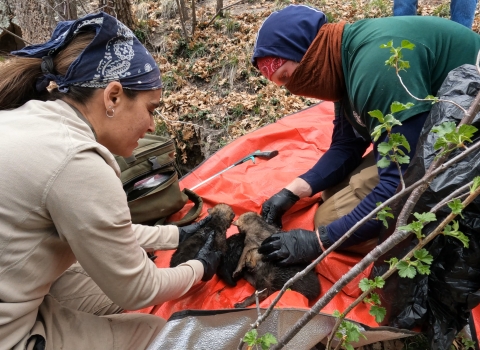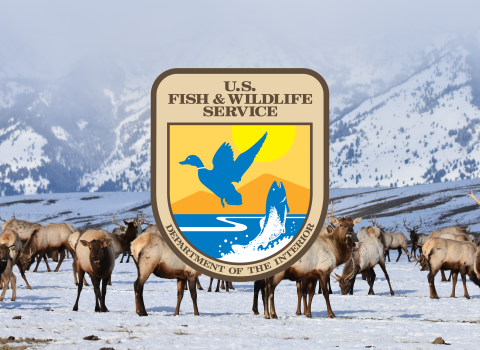Answering President Obama’s call to ensure economic development, infrastructure and national security goals are compatible with environmental preservation, the U.S. Fish and Wildlife Service today announced a proposal to effectively and sustainably offset adverse impacts of development activities to the nation’s most at-risk species and their habitats.
In his November 2015 memorandum, the President directed the Department of the Interior to update its existing mitigation policy and craft a new policy that addresses mitigation of impacts on species that are listed, or may soon need to be listed under the Endangered Species Act (ESA).
As a result, the Service released a proposed revised Mitigation Policy in March 2016 and is now proposing a draft Compensatory Mitigation Policy (CMP). The CMP provides clear and consistent measures to address anticipated but unavoidable adverse impacts of proposed actions on listed species and other resources of concern. Most significantly, the draft policy moves the Service from project-by-project mitigation to strategic mitigation planning at the landscape level. It also sets standards and provides criteria that mitigation programs and projects can meet to achieve conservation goals.
“Despite our best efforts to avoid and minimize impacts on the environment, there will almost always be some impacts that are unavoidable. Where at-risk species are concerned, we must ensure to the greatest extent possible that those impacts are compensated for,” said Gary Frazer, the Service’s Assistant Director for Ecological Services. “This policy takes a landscape-level approach to mitigation that will assist the Fish and Wildlife Service in modernizing our compensatory mitigation practices and meeting the challenges posed by a growing human population, climate change climate change
Climate change includes both global warming driven by human-induced emissions of greenhouse gases and the resulting large-scale shifts in weather patterns. Though there have been previous periods of climatic change, since the mid-20th century humans have had an unprecedented impact on Earth's climate system and caused change on a global scale.
Learn more about climate change and other human-induced threats, while still being compatible with today’s vital economic activity.”
The proposed CMP is the first comprehensive treatment of compensatory mitigation under authority of the ESA to be issued by the Service. The policy replaces previous policies and guidance documents and expands coverage to all compensatory mitigation mechanisms recommended or supported by the Service when implementing the ESA including: permittee-responsible mitigation, conservation banking, in-lieu fee programs, habitat credit exchanges and other third party mitigation arrangements. The benefits provided by these mitigation programs will encourage and incentivize federal agencies and applicants to develop proposed actions that compensate for adverse impacts to affected species.
The CMP adopts the guiding principles from the proposed revised Mitigation Policy, including the goal of ensuring that, at a minimum, an action results in no net loss toward achieving conservation outcomes for affected resources, or a net benefit in conservation outcomes, whenever the situation merits and doing so is allowed by law.
The proposed policy will publish in the Federal Register on September 2, 2016. Written comments and information concerning this proposal can be submitted by one of the following methods:
- Federal eRulemaking Portal: http://www.regulations.gov. Follow the instructions for submitting comments to Docket No. [FWS-HQ-ES-2015-0165]; or
- U. S. mail or hand-delivery: Public Comments Processing, Attn: [FWS-HQ-ES-2015-0165]; Division of Policy, Performance and Management Programs; U.S. Fish and Wildlife Service; 5275 Leesburg Pike - MS: BPHC Falls Church, VA 22041-3808.
Comments must be received within 45 days, on or before October 17, 2016. The Service will post all comments on http://www.regulations.gov. This generally means the agency will post any personal information provided through the process. The Service is not able to accept email or faxes.
The mitigation principles and compensatory mitigation standards identified in this draft policy are part of the Service’s efforts to improve the implementation of the ESA. For more information: https://www.fws.gov/endangered/improving_esa/cmp.html.


